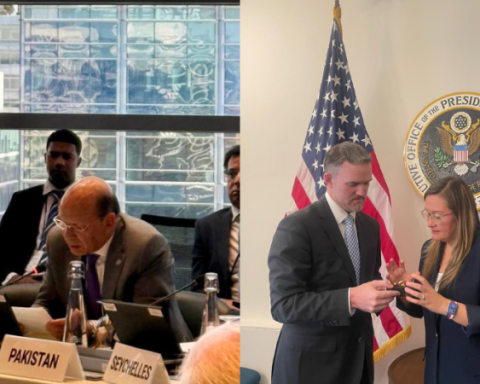
This Friday the paper was filed for the first debate in the House of Representatives of the health reform project, one of the most criticized. The phrase “positive presentation” that is read in the 527-page document represents a respite for a bet that has had more criticism than praise.
The document was signed by the Conservative party, the ‘U’ party, which sounded like dissidents; the Historical Pact, Commons, Green Party and Peace benches. The Liberals are not there, who, as César Gaviria, their natural leader, had announced in a statement, will file their own project in the following legislative period.
(Read: Report on health reform was filed in Congress).
But what is new in the paper that was signed with the conservatives and the ‘U’?
In principle, the paper brings together common elements among the accumulated projects, such as: “the need to strengthen Primary Health Care, public hospitals, the dignity of workers in the health sector and the improvement of the flow of resources through the use of the mechanism of direct rotation from the address”.
Thus, “the focus of social health insurance is maintained as a guarantee of comprehensive universal health care.” In addition, it is maintained that the State will affect the Determinants of Health, “in order to improve the general and individual living conditions of the inhabitants of the national territory; reduce the prevalence and incidence of diseases and reduce their socioeconomic burden”. An important point that is detailed in the document is that the actions on these determinants “transversally in the budgets of the entities, and must be taken into account when planning them.”
One of the agreed points is the design and implementation of the Unified Public Health Information System. Spuis, which basically consists of the fact that the medical history of the patients can be reviewed in a care center in the Amazon, such as in La Guajira.
Regarding the EPS, which are the cornerstone, it must be said that they have been performing functions such as: ensuring, which according to Fedesarrollo is what has allowed today to have 93% coverage; mediate State resources, affiliate users, register them, manage health risk, among others. The Government project took away many of these functions and only left them carrying out audits, managing primary care centers and little else. It took away their role as insurers and health risk managers.
In the document of the presentation, they mention that the EPS that “comply with the qualification and permanence standards in force in the regulations, and that wish to continue participating within the Social Insurance System in Health, will become Health and Life Management Entities in the next two years. To do this, they must present a debt and payment acknowledgment plan with respect to health service provider entities.
After those two years, the EPS, which would be called Managing Entities after that period, “may be of a private or mixed nature.”
The document details that in this transition process, the EPS that decide to remain “will receive the annual value per capita without funds, for medium and high complexity services, which will be recognized monthly according to the definitions of the Ministry of Health and Social Protection, taking into account the recommendations of the National Health Council”.
“The National Health Superintendence will authorize, through an administrative act, the operation of the Health Promoting Entities that, through their transformation into Health and Life Managers, are interested in managing medium and high complexity services for the population that is authorize and hire them and the fulfillment of the other functions that correspond to them ”, reads the document.
The direct turn of the Adres is maintained, vertical integration is not allowed and the proposal by the parties is resumed in which the now Managing Entities “will only receive up to 5% of the resources of the UPC for administration expenses (value that will be estimated in the regulation). They will not receive the UPC resource for health or payment of financial benefits. These resources will be centralized in ADRES and will be directed directly to health service providers and health technology providers”.
One point that was taken up from what was proposed by the parties is that “the debts that the liquidated EPS have left in public hospitals will be paid gradually, with future terms agreed with the Ministry of Finance and Public Credit.”
This article awaits the debate in the Seventh Commission of the Chamber, the Plenary of the Chamber and its counterparts in the Senate, from which it will come out with modifications.
BRIEFCASE
















